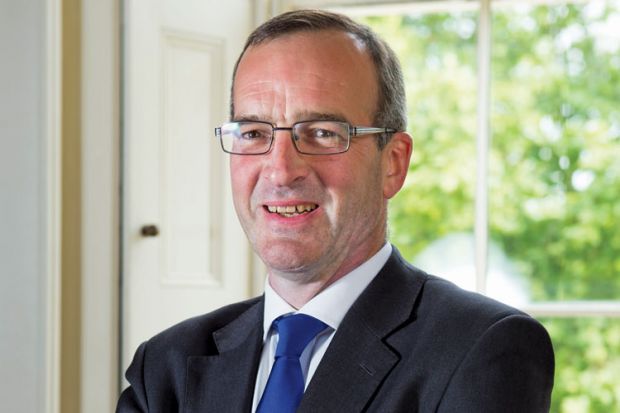Alun Evans, director of the UK government’s Scotland Office, takes over as the British Academy’s chief executive this summer, replacing Robin Jackson. Mr Evans, who is working on a PhD, has held several policy roles, including principal private secretary to three secretaries of state and head of strategy at the Department for Business, Innovation and Skills
Where and when were you born?
Ashford in Middlesex (now Surrey).
How has this shaped you?
Not at all – except to remind me that grammar schools are not all they are cracked up to be, judging by the one I attended.
What is your priority as the British Academy’s new chief?
Continuing to raise its profile and maintaining a good financial settlement, despite the difficult public expenditure climate. I want to ensure the health of the humanities and social sciences, communicate their importance and ensure a fair settlement for the British Academy in the forthcoming spending review.
Are the arts, humanities and social sciences as important as their STEM counterparts when it comes to funding research?
The Academy exists to inspire, recognise and support high achievement in the humanities and social sciences, and to champion their role and value. Addressing many of the most complex challenges of modern-day society, from tackling Ebola to obesity, from productivity to climate change, requires joined-up policy solutions informed by science, the humanities and social sciences. That is an example of what the Academy can offer.
With your in-depth knowledge of the sector – from both sides of the coin – what is its most pressing concern post-general election?
Ensuring that the UK does not slip further behind its international competitors, who are investing far more heavily in science and research than we are. This remains the big challenge for the government, for all institutions, for the research councils and for the national academies alike.
You’re studying for a PhD while also working. What’s it like being a student again and how difficult is it to juggle the two enterprises?
Great fun…and very difficult.
How are you faring on the PhD and would you recommend doing one?
I have been studying for almost five years (part-time) at Queen Mary University of London. My PhD is about the changing role of ministers’ private offices over the past 50 years. I am making good progress with the writing, although I do have to work hard to find the time to complete a number of interviews with former civil servants and to get to the National Archives to complete the research. That is my major task in the coming months.
As a child, what did you want to do when you grew up?
To go into politics. But as it happened, I ended up as a civil servant working at different times for ministers from all three major political parties.
What was your most memorable university moment?
It’s a long story and not worth telling here, but it involved all eight pubs in Wivenhoe and the two bars on the University of Essex campus.
Tell us about someone you admire
Anthony King, professor of government at Essex, taught me politics as an undergraduate some 35 years ago. I am still learning from him. His recent book (with Ivor Crewe), The Blunders of our Governments, should be required reading for every minister.
What do you do for fun?
Run marathons – if you call that fun.
If you were the UK universities minister for a day, what policy would you immediately introduce to our sector?
A commitment to maintain and as soon as conditions allow to increase investment in all areas of UK science and research, including the humanities and social sciences, as the best way of ensuring that new ideas and innovation can continue to thrive in a dynamic, democratic, fair and prosperous society. And I would issue the same challenge to the private sector to do likewise. Funding research and innovation is a job not just for government but also for industry and society as a whole.
POSTSCRIPT:
Article originally published as: HE & me (25 June 2015)
Register to continue
Why register?
- Registration is free and only takes a moment
- Once registered, you can read 3 articles a month
- Sign up for our newsletter
Subscribe
Or subscribe for unlimited access to:
- Unlimited access to news, views, insights & reviews
- Digital editions
- Digital access to THE’s university and college rankings analysis
Already registered or a current subscriber?
